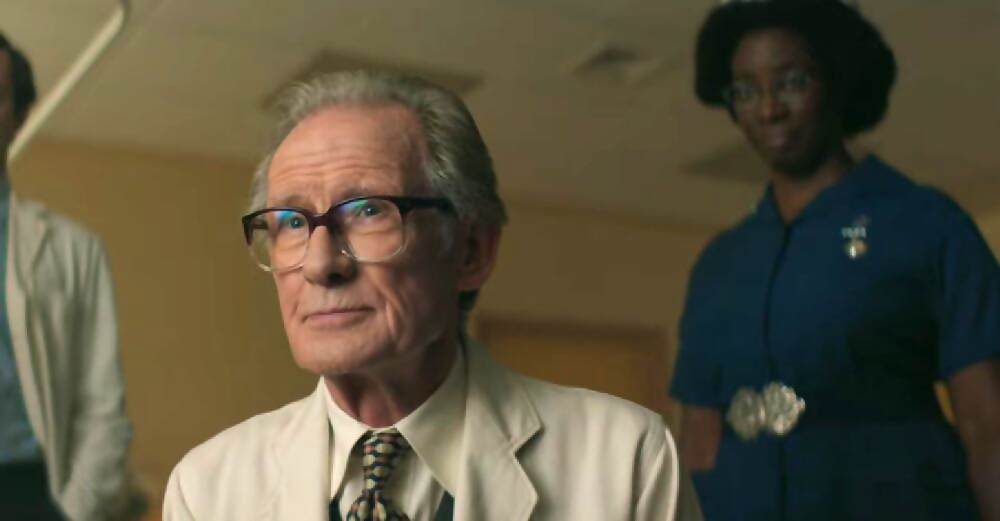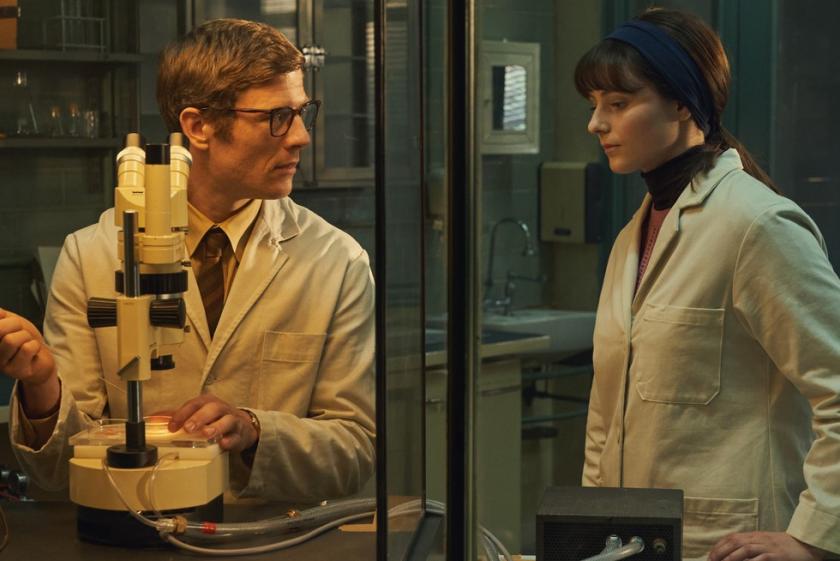Marie Curie excepted, movies about female scientists remain scarce, not just because STEM careers and Nobel Prizes still favour men. Now comes the British-made Joy, which explores women’s contributions to a decades-long quest to cure infertility.
This cozy historical drama traces the leadup to the birth of so-called “test-tube baby” Louise Brown, the first person conceived outside the womb, with an emphasis on the behind-the-scenes work of a woman who helped make it happen. Along with Dr. Robert Edwards, an embryologist, and Dr James Steptoe, an ob-gyn, Jean Purdy, a nurse and laboratory manager, fought the scientific establishment and long odds to usher in a new frontier in human reproduction.
Forty-six years on from the birth of baby Brown, it’s hard to remember just how revolutionary this procedure was. Yet Joy’s timeliness cannot be understated. In the US, right-wing crusades to limit women’s health care options, including in vitro fertilisation, will only gain momentum with the re-election of Donald Trump as President.
Joy begins with Purdy (Thomasin McKenzie) overseeing the underfunded, misunderstood mammalian embryo-research efforts of Dr Edwards (James Norton). Funding from the Medical Research Council is scarce, and Edwards’s manner (blunt and slightly shambolic) hinders their quest for legitimacy. When Purdy, brainy and diplomatic, reels in the team’s prickly third member, Dr Steptoe (Bill Nighy, in fine form), they inch closer to success. (Pictured below: Bill Nighy)
 Though director Ben Taylor and screenwriter Jack Thorne go easy on scenes of laboratory triumphs, they also pad Joy’s first half with picturesque scenes of the heroine cycling around Cambridge University and upbeat pop needle-drops.
Though director Ben Taylor and screenwriter Jack Thorne go easy on scenes of laboratory triumphs, they also pad Joy’s first half with picturesque scenes of the heroine cycling around Cambridge University and upbeat pop needle-drops.
But a tense confrontation at a medical conference reveals the kind of scientific stodginess and ingrained misogyny these mavericks are up against. Establishment doctors promote a gruesome-sounding gynaecological procedure, while Steptoe argues for laparoscopy, a far less invasive method. “You’re poking around in the unknown,” huffs one old-school doctor, talking about female anatomy like it’s another planet.
As the trio recruit women interested in their research, they, too, face accusations of treating these individuals like “cattle” rather than human beings. (Though 13 million people have been born from IVF, the procedure’s initial success rate, post-Louise Brown, was less than 10 percent). Purdy quickly engages the women, who’ve dubbed themselves “The Ovum Club”, joining them on social outings and confiding that she suffers from endometriosis and can never carry a pregnancy to term.
Privately, Purdy’s work puts her in conflict with her Christian faith and devout mother (Joanna Scanlan), who calls her a sinner. Edwards, who becomes the public face of the research, attempts to counter religious outrage and tabloid headlines that cast him as a Dr. Frankenstein figure. (One of IVF’s opponents was, surprisingly, Dr James Watson, co-discoverer of DNA’s molecular structure.)
Oddly, the team never puts Purdy forward as a spokesperson for the procedure. “As women, we presume we can have children,” she tells her colleagues. “It’s a biological and social expectation.” Even the slim chance of achieving a pregnancy through scientific means, she argues, is better than no chance at all. Years later, Edwards argues for recognition of Purdy’s work.
Joy, in its portrait of teamwork and determination, represents a subtle, emotionally satisfying push to redress that oversight. Sadly, scandalously, Purdy’s contribution to science ended too soon. The real Jean Purdy died of cancer at age 39, and the condition that she suffered from all her life, endometriosis, still has no cure.















Add comment